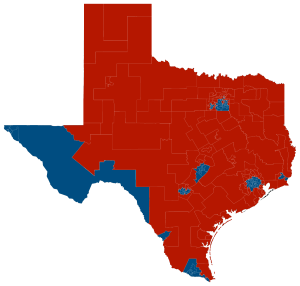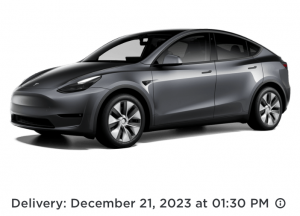We’ve all seen the YouTube videos of electric vehicles beating ICE vehicles (even ICE “supercars”), at the drag strip. What many of the uninitiated drivers believe is that people buy EVs for the environment. Some do, but that’s not the whole story. Just ask the next EV driver you meet. Many will tell you they bought their EV for its acceleration, cornering, low cost of operation, almost nonexistent scheduled maintenance, etc… as well as environmental concerns.
In other words, paraphrasing an old Presidential campaign slogan, “It’s about the performance, people!”
Some companies have produced “hotter” chips to boost EV performance, but those mods can possibly void the vehicle’s warranty. One of the great strengths of EVs is the length of their drivetrain/battery warranties, so do you really want to mess with that?
Now, there’s a simple, low cost way to increase your plug-in vehicle’s power. Simply add a “Join TxETRA” QR code sticker.
It won’t make your car any faster, but it will increase its power, by helping others add their voice to yours with regards to EV policies in the great state of Texas.


In case you missed the announcement, TxETRA’s legendary Executive Director, Tom “Smitty” Smith retired at the end of 2023 and I was appointed to be the Interim Executive Director. One of my missions is increasing membership, so EV policies in Texas will be guided by EV drivers and EV industry members.
There are approximately a quarter million EVs and PHEVs registered in Texas. If we all join together, we can make our voices heard at every level of Texas government. And honestly, who understands the world of electric transport more than EV drivers?
Legislators and state executives are just people, like you and me. If they don’t drive a plug-in vehicle, how can we expect them to create policies that will keep Texas in the lead in EV adoption, job creation or attracting manufacturers and innovators to our great state?
Texas led the way in agriculture, cattle, integrated circuits, computers, space exploration, renewable energy and yes, oil & gas. We can show the rest of the nation how to create EV policies that benefit all our citizens.
But first we need a unified voice.
In the last legislative session three bills were proposed to have EV drivers “pay their fair share” for road and bridge maintenance and repair. Those proposals were:
- a $1,400 fee, at time of vehicle purchase,
- a $300 annual fee, added to an EVs annual registration fee, and
- a $200 annual fee, added to an EVs annual registration fee.
EV drivers want to pay their fair share. We all want safe roads and bridges. But we don’t want to be gouged. TxETRA showed that an average crew cab pickup only generates $89 in road repair revenue via gasoline taxes. The federal government matches that amount, for a total of $178. Since those revenues are generated through gasoline taxes, they directly reflect the amount of driving done by the vehicle paying those taxes. Since heavier vehicles (like trucks and SUVs) require more gasoline to get down the road, the gasoline tax is great at taxing heavier vehicles more, as they cause more wear and tear on our roads. Unfortunately, there isn’t an easy mechanism for gathering that same information (weight and miles driven) on EVs, because the Texas Legislature ended mandatory, annual vehicle inspections in counties that are in attainment of federal air quality standards. In other words, without scrapping the gasoline tax and moving a new taxation method for all current (gasoline, diesel, CNG) and future (electricity, hydrogen, etc.) “fuel” types, what do we do? (I have an idea. More on that later.)
That’s just one policy TxETRA has been working on.
We played an important part in defeating the $1,400 and $300 fees, but as many EV drivers are starting to discover, the annual vehicle registration fee for EVs has increased by $200. At the very least, TxETRA was key in saving EV drivers in Texas $100 every year they have an EV, by defeating the $300 increase in fee. TxETRA membership (for EV drivers and enthusiasts) costs only $25 per year. That’s just 1/4 what TxETRA saved you in the last legislative session and that savings continues year after year, for as long as you drive an EV in Texas!
The next legislative session doesn’t begin until next year, but TxETRA doesn’t take a break. We are actively working on policies that will accelerate EV adoption, rather than hinder it. But we need your help. Smitty once told me that if just ten constituents directly contact their legislators regarding a subject, their vote can be changed. That’s not contact via cookie-cutter emails or petitions, but personal contact like emails or phone calls. Two of the benefits of TxETRA membership are our monthly email newsletter, to keep you up-to-date on EV-related developments and “legislative alert” emails to make you aware of anti-EV policies being proposed in the legislature. By acting on the legislative alerts, YOU can have an impact on EV policy in Texas.
That’s my sales pitch.
I pledge to work hard for you and EV-friendly policies and when you join TxETRA, I’ll send you two stickers, like the ones shown on my cars above. One is for you and one is for you to give to another EV/PHEV driver. Help us make TxETRA as viral as possible. It’s like the 1980s shampoo commercial: if each of us tells two friends “and they tell two friends and so on and so on…” we’ll make a positive difference for the future of the great state of Texas.
P.S. About those registration fees:
The EVangelist has a sales tax license in Texas, for t-shirt sales. Every quarter, I provide may sales information to the state so my sales taxes can be calculated and collected. That sales volume is totally self-reported. If Texas can use that method for something as huge as sales taxes, why can’t we do the same for EV drivers? We could annually report our odometer reading to the state in order to pay road use fees based on our actual road use and vehicle weight. With this approach, there’s even a way to prevent cheating: When a vehicle is sold in Texas, an odometer statement is required, and that would be a mechanism to collect the correct amount of taxes, even if a driver under-reported their mileage. The next vehicle owner surely will want to make sure the statement reflects the actual mileage, so they won’t take on the tax burden of the previous EV owner. That’s a better way for EV drivers to pay their fair share.
Please consider joining TxETRA and let’s get this done. Together.



